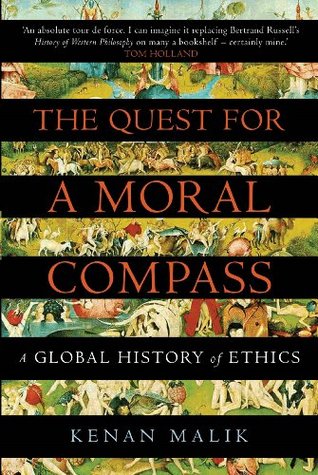More on this book
Community
Kindle Notes & Highlights
In part, the history of
moral thought is the history of attempts to address the problem
of reconciling fate and ...
This highlight has been truncated due to consecutive passage length restrictions.
agathos is often rendered in English as ‘great man’. In Agamemnon’s world, a man’s social status and his moral worth are almost indistinguishable.
In the modern world, morality is inseparable from choice. Homer’s warriors cannot choose to be moral or not.
The inner world was opaque to him, but the divine world was a reality.
To understand the world, the Presocratics argued, we need to go beyond the observable and comprehend the underlying principles at work.
faith that the world was ordered in such a
way that it could be intelligible to reason;
What does it mean for morality to have an objective existence? If moral laws come neither from gods nor from humans, whence do they derive? Socrates never answered such questions.
human condition can be rationally understood and that out of this understanding emerge the tools with which we can transform ourselves.
‘The feeling for humanity has not yet left me
the importance of the Enlightenment was that it cleansed the European mind of medieval superstition and allowed the light of reason to shine upon human
‘the recovery of
is
read in highly contradictory ways.
‘private vices are public benefits
‘moral sense
Earl of Shaftesbury,
the notion of the individual as a figure with an existence prior to, and distinct from, society, a weakness that has continued to dog much subsequent moral thinking.
individual conscience and of happiness
K
Kaliningrad.
‘Concepts without percepts are empty,
‘percepts without concepts are
active mind
‘Each man his own moralist,
good will.
hypothetical and categorical imperatives.
universal
maxim
ends, not means.
context.
the world is complex;
flexibility is the death of the categorical imperative.
The rules are an attempt to bring moral order to the chaotic imperfection of the world.
an end in myself but also a member of ‘the kingdom of ends
the idea that all the different individual maxims will magically cohere into a harmonious system of universal law
rethink the relationship between humans as legislators and subjects,
It squeezes the rich complexity of human emotions and needs into an accountant’s grid.
‘pig philosophy
‘community of happiness
consequence
He challenged,
the idea of the moral absolute.
so glaring are the flaws in Bentham’s theory,
‘a reformer of the world
‘Man’,
‘is nothing else but what he makes of himself.’


